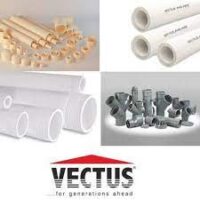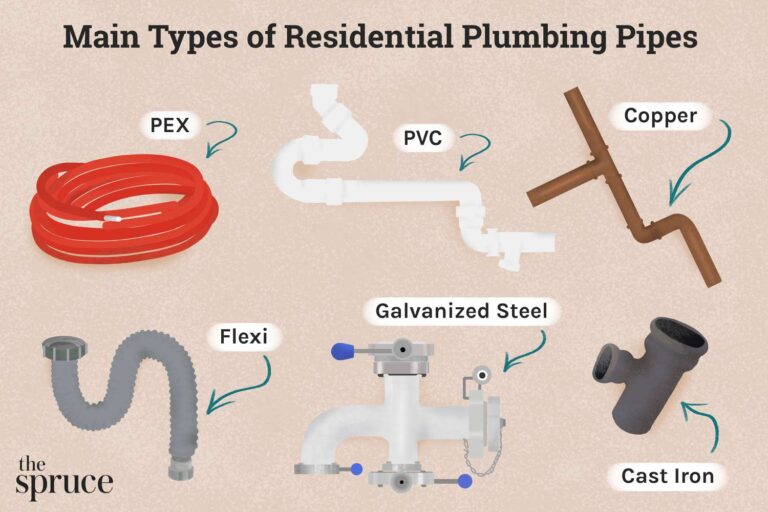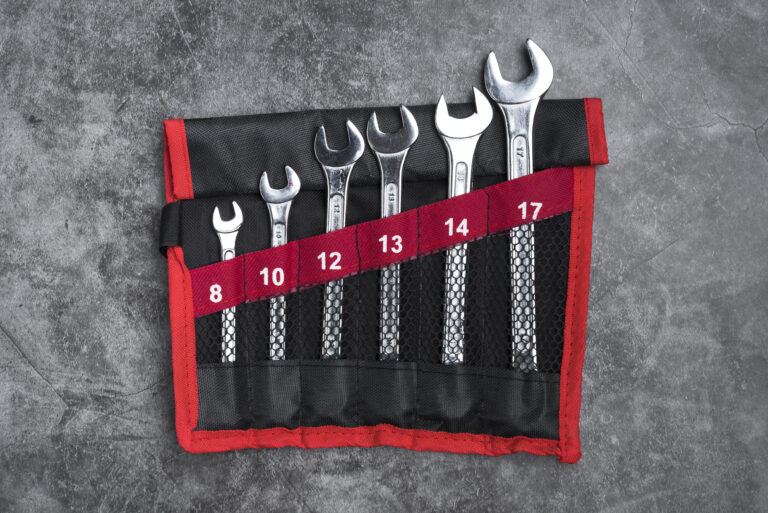Why Are Plumbing Materials Important?
The right choice of plumbing materials is essential to ensure that plumbing systems last for a long time and perform their intended function. Plumbing materials also play an important role in the aesthetics of a home or commercial building, as they can be used to create a unique look and feel. In conclusion, plumbing materials are an important part of any building and should be chosen carefully to ensure the best performance and longevity.
Types of Plumbing Materials
Plumbing materials are essential for the installation and maintenance of plumbing systems. Different types of plumbing materials are used in various applications, and the choice of material depends on the intended use of the system. Common types of plumbing materials include copper, PVC, steel, and PEX tubing. Each material has its own advantages and disadvantages and should be chosen carefully based on the specific requirements of the system.
Copper is one of the most popular materials for plumbing systems due to its strength and durability. Copper is also resistant to corrosion and is easy to work with. It is, however, one of the more expensive options. PVC is a lightweight, durable material that is often used for drain pipes and other low-pressure plumbing systems. Steel is a strong, rigid material that is often used for water supply lines. It is, however, susceptible to corrosion over time. PEX tubing is a flexible material that is often used for hot and cold water supply lines. It is easy to install and is relatively inexpensive.
It is important to choose the right plumbing material for the job to ensure that the plumbing system is safe and efficient. The right material can help to reduce the risk of plumbing problems and ensure that the system functions properly for many years to come.

Benefits of Using Quality
Using quality plumbing materials is essential for ensuring the long-term performance of any plumbing system. Quality plumbing materials provide many benefits that range from improved durability and efficiency to cost savings and time savings. Quality materials can help reduce plumbing-related problems and extend the life of a plumbing system.
The biggest benefit of using quality materials is that they are more durable and can last longer than inferior materials. Quality materials can withstand extreme temperatures, humidity, and other environmental elements better than inferior materials, which can cause them to deteriorate over time. Quality materials also have better insulation properties, which can make them more efficient and help reduce energy costs.
Good quality materials can help save time and money when it comes to repairs and maintenance. Quality materials can help prevent common plumbing problems, such as leaks, clogs, and other issues that can be expensive to repair. Additionally, quality materials can help reduce the need for frequent repairs, which can add up over time.
Finally, using quality materials can help provide peace of mind and ensure that your plumbing system will remain in good condition for years to come. Quality materials are designed to meet industry standards, and they can help minimize the risk of problems in the future. Quality materials can also help ensure that your plumbing system is up to code and can help protect your home from potential damage.
Overall, using quality plumbing materials can provide numerous benefits that can help save time and money in the long run. Quality materials are designed to last longer and withstand the elements better than inferior materials, and they can help reduce plumbing-related problems and maintain the integrity of your plumbing system.
Factors to Consider When Choosing Plumbing Materials
Plumbing materials are essential components in any home or business plumbing system. But when it comes to choosing the right materials, there are many factors to consider. From the type of materials to the quality of the materials, it is important to make sure that the right products are being used for maximum performance.
The type of material used is one of the most important considerations. Copper, PVC, and PEX are all common materials for plumbing systems, but each has its own advantages and drawbacks. Copper is the most expensive material but is also the most durable. PVC is the most affordable option but should be avoided in areas where temperatures can get very cold. PEX is a newer material and is often the best choice for most applications.
The quality of the materials is also important. Poor quality materials are prone to leaks and can cause problems with the plumbing system. Look for materials that are certified for use in plumbing applications and are designed to be durable.
Finally, the cost of the materials should also be taken into consideration. The cost of materials can vary widely, so it is important to shop around for the best deals.
When it comes to choosing plumbing materials, it is important to consider the type of material, the quality of the material, and the cost. By taking all of these factors into account, homeowners can ensure their plumbing system is set up for maximum performance and longevity.
Common Problems with Poor Quality
When it comes to plumbing, the quality of the materials used is essential. Poorly-made and low-grade plumbing materials can lead to a range of issues, from minor inconveniences to major catastrophes. From corroded pipes to leaky faucets, plumbing problems can cause expensive damage to your home and create a significant disruption to your daily life. In order to prevent these problems, it is important to choose high-quality materials that are crafted for durability and longevity.
One of the most common issues caused by poor quality plumbing materials is corrosion. As metal pipes age, they can rust and corrode, reducing the lifespan of the pipe and leading to water leaks. Corrosion can also be accelerated by certain environmental factors, such as exposure to extreme temperatures, acidic water, and high levels of humidity.
Another common problem caused by low-grade materials is a decrease in water pressure. This can be caused by a number of issues, including blockages in pipes, faulty valves, and poor-quality fittings. Low water pressure can cause a range of problems, from reduced water flow to inefficient dishwashers and washing machines.
Finally, poor quality materials can lead to the development of mold and mildew. This can be caused by an accumulation of dirt and bacteria in the pipes, as well as water leaks and condensation. Mold and mildew can cause a range of health issues, including asthma and allergies, and can have a significant impact on your quality of life.
In order to prevent these issues, it is important to ensure that the plumbing materials you use are of the highest quality. Investing in quality materials will not only save you money in the long run, but will also give you peace of mind knowing that your plumbing system is safe and reliable.

Safety and Regulations
When it comes to plumbing, safety is of the utmost importance. That’s why it is essential to use only the highest quality materials when installing, repairing, or replacing any part of a plumbing system. Plumbing materials must meet certain safety requirements and regulations set forth by local, state, and federal governments. This ensures that all plumbing materials are safe and effective for use in homes and businesses.
Additionally, plumbing materials must be durable and able to stand up to the test of time. Many plumbing materials are subjected to extreme temperatures and pressure, and must be able to withstand these conditions without failing. Additionally, some plumbing materials are exposed to caustic chemicals and must be able to resist corrosion and other damage.
Finally, plumbing materials must be able to be repaired and replaced without too much difficulty. Many plumbing materials are designed to be easy to install and take apart, making it easier to repair or replace parts of the plumbing system.
In conclusion, choosing the right plumbing materials for any job is essential. It is important to make sure that all materials meet safety requirements and regulations, are durable and able to withstand harsh conditions, and are easy to repair and replace. By investing in quality plumbing materials, you can ensure that your plumbing system functions as it should for years to come.
Care and Maintenance of Plumbing Materials
Plumbing materials are essential components of any home or business. They are used to ensure that water is pumped, drained, and diverted in the correct manner. To ensure that plumbing materials are used safely and efficiently, it is important to understand the care and maintenance requirements for each type of material. With the correct maintenance, plumbing materials will last longer and perform better.
The most common plumbing materials are copper, galvanized steel, and plastic. Copper is a popular choice due to its malleability and durability, however, it can corrode if exposed to the elements or to hard water. Galvanized steel is strong and can withstand high temperatures and pressures. Plastic is less expensive than other materials, but can be prone to cracking or warping.
To ensure that plumbing materials are properly cared for, regular cleaning and maintenance should be performed. Plumbing fixtures should be wiped down regularly, and any exposed piping should be checked for corrosion or damage. Additionally, any leaking pipes should be repaired promptly. Regular maintenance will help keep plumbing systems functioning efficiently and prevent expensive repairs in the future.
When selecting plumbing materials, it is important to consider the climate as well as the type of water being used. Materials that are not appropriate for the climate or water type can lead to corrosion or other problems. Additionally, materials should be chosen based on their intended use and the amount of maintenance that is required. By considering all of these factors, homeowners and business owners can make sure that their plumbing materials are the best fit for their needs.
FAQs About the Why Are Plumbing Materials Important?
1. What types of plumbing materials are available?
Answer: Plumbing materials typically consist of copper pipes, brass fittings, PEX tubing, PVC pipes, and other materials used for the installation of water supply and drainage systems.
2. Why is it important to use the right plumbing materials?
Answer: Using the right plumbing materials is important for a few reasons. It ensures that your plumbing system is safe, effective, and durable. Additionally, using the right materials can prevent expensive repairs in the future due to material failure or corrosion.
3. What should I consider when choosing plumbing materials?
Answer: When selecting plumbing materials, it is important to consider the local water conditions, the type of fixtures being installed, the building code requirements, and the budget. Additionally, it is important to research the pros and cons of various materials to find the one that works best for your project.
Conclusion
Additionally, plumbing materials provide the necessary protection to ensure that water is safe for human consumption and that the environment is protected from harm. Plumbing materials are an integral part of the construction and maintenance of any plumbing system, and are essential for ensuring a safe and efficient plumbing system.







